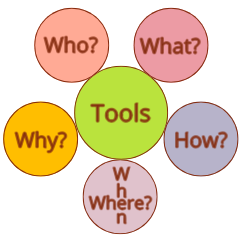What/Anticipation
Anticipation
In this section, we will deal with the primary forms of human communication as we shape and use them in the course of our activities.
Here, let us set aside some common assumptions about the role of thinking in the course of acting. We do not think out a sequential course of action, issuing from it a set of instructions about what to do to guide the progression from start to finish. Rather we anticipate the result, which defines a hypothetical path between the origin and the destination, and then we improvise, to the best we can, and we adjust our movement, always minimizing our perceived deviation from the hypothetical path.Consciousness does not represent to us surrounding reality so that we can fixate something in awareness and issue the sequence of instructions enabling us to affect a part of it. Rather consciousness enables us to construct, evaluate, and choose among anticipations of what we might do, and to judge and react to deviations from the paths to the anticipations we set in motion.
Systems for communicating culturally enable human consciousness to cooperate with others in anticipating what can and should take place and to correct for deviations from that path leading to their anticipations.
[* To be clarified and continued. *]




